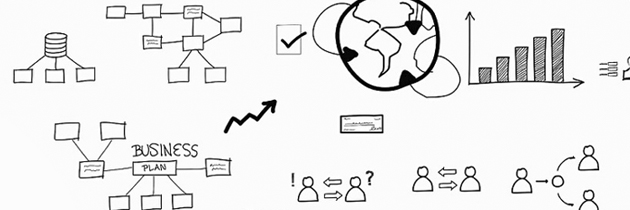Every couple of years the HR function goes through this existential crisis. We had it in the nineties when we moved to HR Business Partnering, in the 00’s when we it was all about outsourcing HR transactional work and now we at it again with the rise of mobile technology, big data and our perpetual favorite, the Millennials.
Having spent 18 years working as an HR executive in a global company and the last ten years advising CHRO’s and CEO’s on leaders, talent and culture – I can feel the pain. I can hear the frustration of CEO’s on the contribution of HR to their business. A much quoted Survey and Conclusion by Deloitte indicated that 40% of all the CHRO’s in the participating companies now come from a business background rather than an HR background. This builds up a strong case for why it seems like HR isn’t able to contribute to the talent struggle that many CEO’s feel like they’re facing.
The Contrasting Theories of The Future of HR
The same survey by Deloitte says it’s time to reinvent the HR function worldwide. It furthers the opinion that HR is in the doghouse again. Last year, Ram Charan went as far as to propose to Split up HR with an administrative/transactional function reporting to the CFO and a leadership/organisational development strand reporting to the CEO.
Dave Ulrich responded strongly to Ram Charan’s proposal by stating that it didn’t do justice to the 20% of HR functions and professionals that are recognized by their companies for doing an excellent job in building capabilities and creating an environment in which teams and individuals can maximize their performance. Of course Ulrich was right and he proposed that we should aim our efforts on guiding the 60% in the middle of the normal distribution to focus on how they can enhance the value they add from the ‘outside-in’ to the organisation.
HR’s Final Sprint to the Decision Table
At the same time however, I see the struggle CHRO’s and their teams are going through. And the perpetual question on how HR can ‘have’ a seat at the top table has been creeping up every other year for the past 20 years that I’ve attended HR conferences and workshops around the world. (My answer to the question has been consistent that it’s up to the HR professional to prove that they can add value and prove to the CEO that they’re worthy of sitting at that table.) As I explained in an earlier article on the Key Strategy to Become C-Suite Leaders, if you as an HR executive are able to explain to your business leader that you want to do something so that the result will generate result for the business, no business leader will ignore you or your potential as a leader.
I don’t think it’s about CEO’s not realizing the importance of people. In fact the Deloitte study found that CEO’s and other senior executives are more worried about talent than ever before. They discovered:
- 87% of respondents are deeply concerned about culture and employee engagement,
- 86% about their leadership pipeline, and
- 80% about workforce capabilities.
All this is more about HR’s ability to have in-depth business and people insights, along with the foresight to understand the root of the challenge. It’s about having an HR function develop innovative and agile solutions that use technology and big data to address these huge business challenges.
The time for HR couldn’t have been better. The value that we can add to organisations outstrip that of many other functions. All HR professionals have to do is to:
[Tweet “Have the knowledge, influence, and aptitude to provide people centric strategic intelligence. “]
Over the next couple of weeks I will share my view on how HR can become ready for the future, add tremendous value and be the CxO the CEO turns to when he needs idea on how to grow the company. Of course, those who have subscribed will get them delivered to their inbox.
See you next week……



